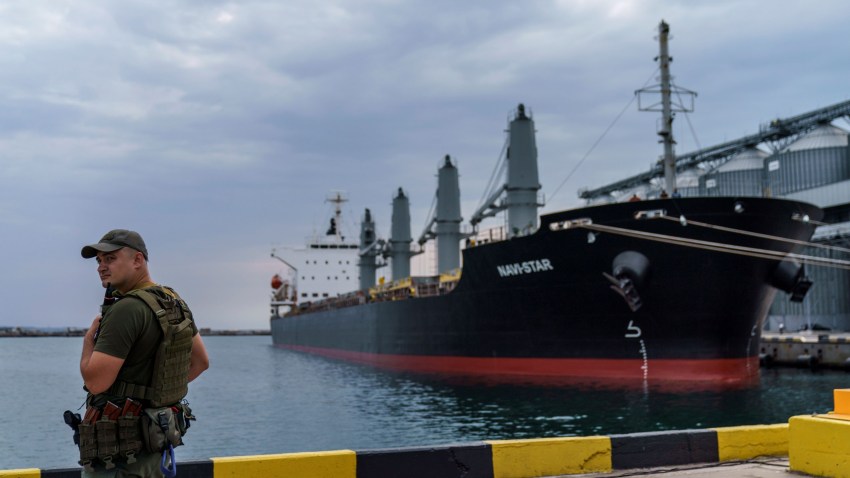As Ukrainian troops advanced along the western banks of the Dnipro River and the Black Sea coast toward the city of Kherson in the first days of November, they passed through villages and towns steeped in centuries of complex history. The area surrounding the small town of Snihurivka, for instance, had at different historical moments been centers of Greek, Jewish, Tatar, Cossack and even Swedish cultural life. The Black Sea port of Ochakiv, from which Ukrainian special operations forces are now launching naval raids on Russian forces, first rose to prominence as a Roman colony and later became a place of battle and cultural exchange between the Ottoman Empire and the Cossack Hetmanate in the 17th century. All of these communities also bear the scars of more recent imperial wars of conquest, whether by Russian and then Soviet imperial systems that worked to erase the traces of previous ways of life, or by the genocidal war pursued by Nazi Germany in the 1940s.
As jubilant residents in and around Kherson welcomed Ukrainian soldiers freeing them from months of brutal Russian occupation, these historical echoes were a reminder that the Black Sea region of which these communities are an integral part has been the scene of many previous cycles of conflict and chaos. The fertile soil that made modern Ukraine an agricultural superpower, and which lies at the heart of the current struggle between Moscow and Kyiv, has also attracted the attention of powerful neighbors going back to the ancient Persian and Roman empires. And since that time, the natural harbors and navigable rivers from Crimea to the northern Turkish coast, which have long helped Black Sea peoples prosper, often fueled armed conflict over control of trade routes and natural resources.
Yet the current chaos unfolding around Russia’s invasion of Ukraine resembles more recent wars of conquest that made the struggle for control of the lands along the Black Sea central to the geopolitics of the Early Modern period. From the 16th century onward, the shifting fortunes of empire-builders in Ottoman Turkey, the Polish Lithuanian Commonwealth and an emerging Muscovite Russia opened space for Crimean Tatars and Ukrainian Cossacks to play these great powers off against each other when defending their own lands and raiding territories controlled by their rivals.

